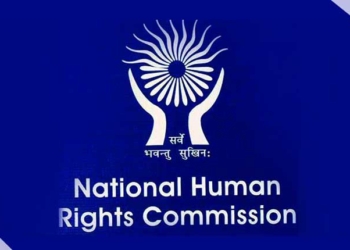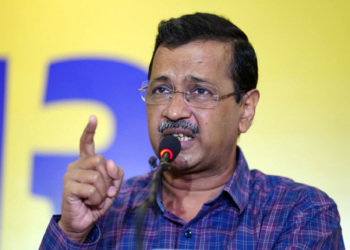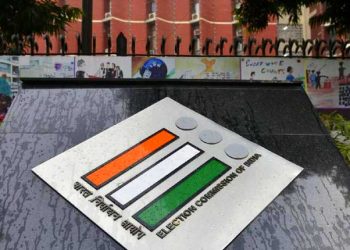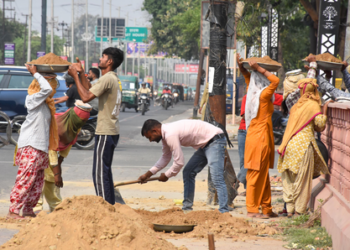New Delhi: National Conference (NC), the ruling party in Jammu and Kashmir, has petitioned the Supreme Court challenging the constitutional validity of the Waqf (Amendment) Act, 2025.
In their plea, several party MLAs, including Arjun Singh Raju and Hilal Akbar Lone, alleged that the contentious law violated fundamental rights of minorities and equality guaranteed under the Indian Constitution.
Meanwhile, a bench of Chief Justice of India (CJI) Sanjeev Khanna and comprising Justices Sanjay Kumar and K.V. Viswanathan is slated to hear on April 16 a clutch of petitions challenging the contentious law, as per the cause list published on the website of the apex court.
Several petitions have been filed before the Supreme Court challenging the constitutional validity of the recent amendments introduced in the Waqf Act.
On Wednesday, Hindu Sena filed an intervention application before the top court supporting the Waqf (Amendment) Act, 2025.
“There is no violation of any right of any member of the Muslim Community. Rather the unamended provision of Waqf Act, 1995 caused serious prejudice to the right and interest of the non-Muslim members of society as in view of Section 3 read with Section 40 of Waqf Act, 1995, the properties of non-Muslim were taken over by Waqf board,” said the application filed by the National President of Hindu Sena.
It added that in view of the amendments, the non-Muslim will get justice whose properties have been taken over or claimed to be Waqf properties.
After the legislation was passed in both Houses of Parliament last week, the Congress announced it will challenge the Waqf (Amendment) Bill (now an Act after the Presidential assent) before the Supreme Court, claiming that it was an attack on the basic structure of the Constitution and was aimed at “polarising” and “dividing” the country on the basis of religion.
On the other hand, the government has said that crores of poor Muslims will benefit from this legislation, and in no way does it harm any single Muslim.
Minority Affairs Minister Kiren Rijiju has said the legislation did not interfere with the Waqf properties, adding that Prime Minister Narendra Modi-led government works with the vision of ‘Sabka Saath and Sabka Vikas’.
Several others, including All India Majlis-e-Ittehadul Muslimeen (AIMIM) chief Asaduddin Owaisi, the Association for Protection of Civil Rights, AAP leader Amanatullah Khan, Maulana Arshad Madani of Jamiat Ulema-i-Hind, All India Muslim Personal Law Board (AIMPLB), Social Democratic Party of India (SDPI), Indian Union Muslim League, Taiyyab Khan Salmani and Anjum Kadari, have filed the petitions challenging the constitutional validity of the Waqf (Amendment) Act, 2025.
The concept of ‘Waqf’, rooted in Islamic laws and traditions, refers to an endowment made by a Muslim for charitable or religious purposes, such as mosques, schools, hospitals, or other public institutions.
(IANS)
















